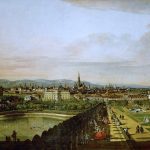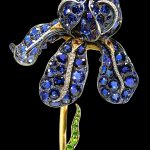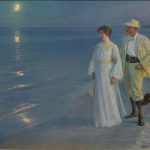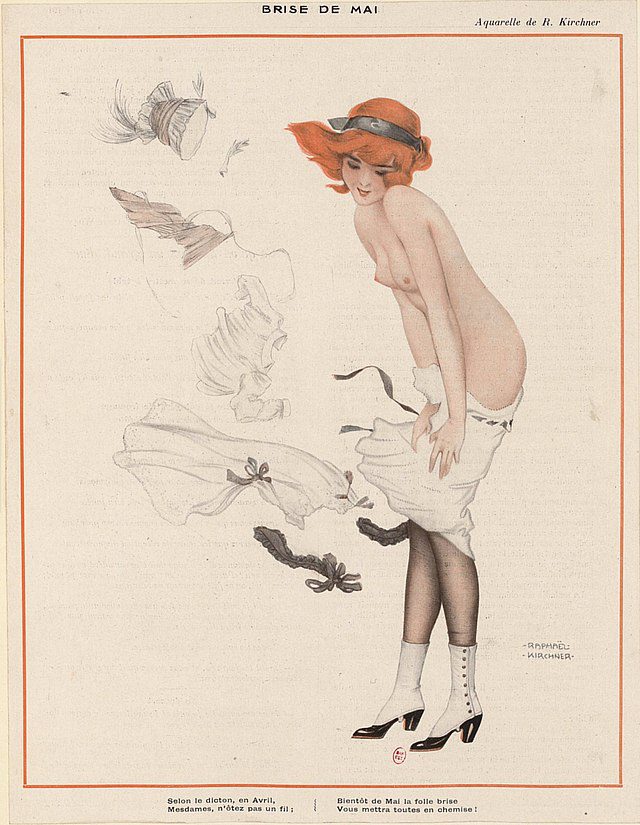
Raphael Kirchner (1876-1917) was an Austrian artist and illustrator, renowned for his distinctive contribution to Art Nouveau and early 20th-century illustration. His work, characterized by its sensuous depiction of women, played a significant role in shaping the visual culture of the Belle Époque era. Kirchner’s illustrations captured the spirit of his time, blending elegance, eroticism, and a whimsical touch that made his pieces highly popular and influential in both Europe and the United States.
Born in Vienna, Austria, Kirchner showed an early interest in art, leading him to study at the Academy of Fine Arts Vienna. His talent was evident from the outset, and he quickly became immersed in the vibrant artistic scene of Vienna, a city at the forefront of modernist movements. It was here that Kirchner developed his signature style, which combined the fluid lines and natural motifs of Art Nouveau with a keen observation of contemporary fashion and femininity.
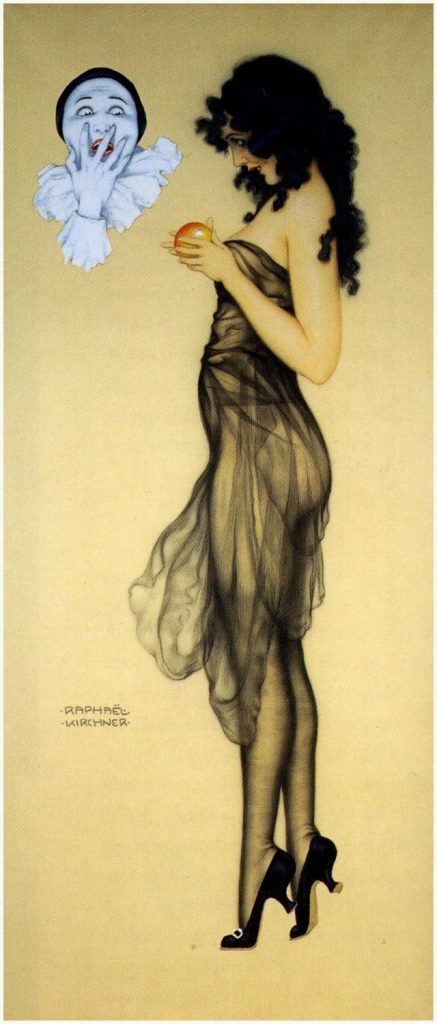
Kirchner’s early work included postcards, magazine illustrations, and decorative panels, which frequently featured alluring and coquettish women, often referred to as “Kirchner Girls.” These figures were depicted with an air of playful innocence and an underlying sensuality, making them immensely popular with the public. His illustrations appeared in leading magazines of the day, including the illustrious “Wiener Mode,” where his contributions helped define the look of the period.
Moving to Paris
In 1900, seeking broader horizons, Kirchner moved to Paris, the epicenter of the Art Nouveau movement. This relocation marked a prolific period in his career, as he immersed himself in the Parisian art scene, drawing inspiration from the city’s culture and the work of other artists in the movement. His work from this period reflects a deepening of his stylistic characteristics, with more intricate designs and a sophisticated use of color.
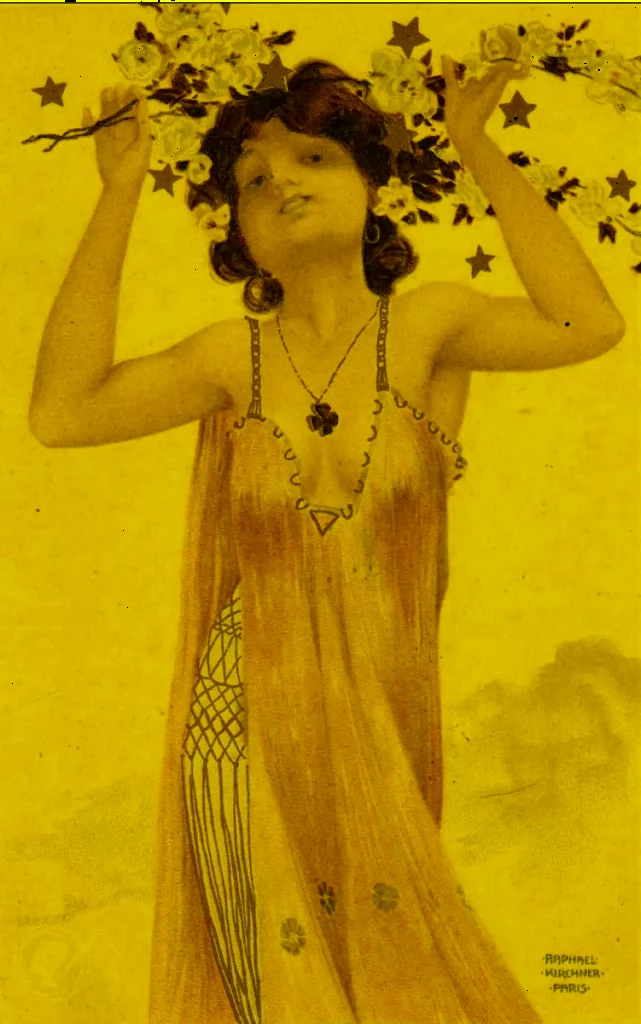
Kirchner’s art was not limited to illustrations; he also designed jewelry, postcards, and theatrical costumes, showcasing his versatility as an artist. However, it was his postcards, particularly those featuring glamorous and eroticized women, that gained him international acclaim. These postcards, often sent by soldiers during World War I, circulated widely, contributing to Kirchner’s popularity and influence.
Essence of an Era
Despite his success, Kirchner’s life was cut short by illness, and he died in 1917 at the age of 41. His career, though brief, left a lasting impact on the world of illustration and Art Nouveau. Kirchner’s ability to capture the essence of his era, combined with his distinctive aesthetic, has ensured his place in the annals of art history.
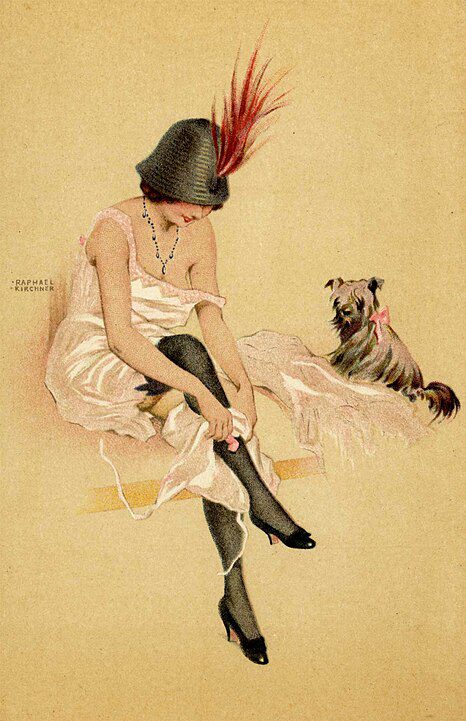
Today, Raphael Kirchner is remembered not only for his contributions to the Art Nouveau movement but also for his influence on the development of early 20th-century visual culture. His work continues to be celebrated for its beauty, elegance, and unique blend of whimsy and sensuality. Kirchner’s illustrations remain a testament to his skill as an artist and his ability to capture the imagination of a generation, making him a pivotal figure in the transition to modern art.

